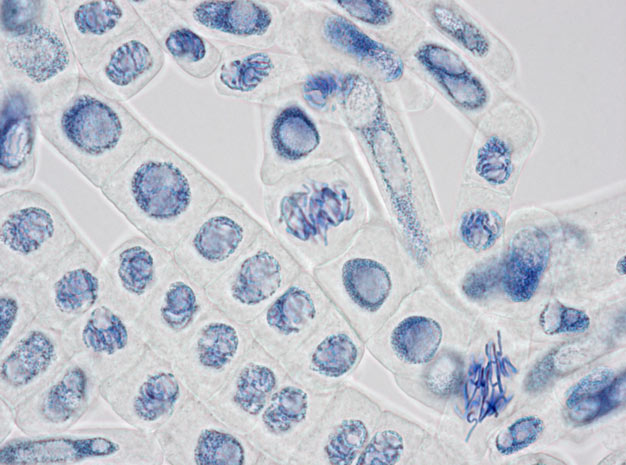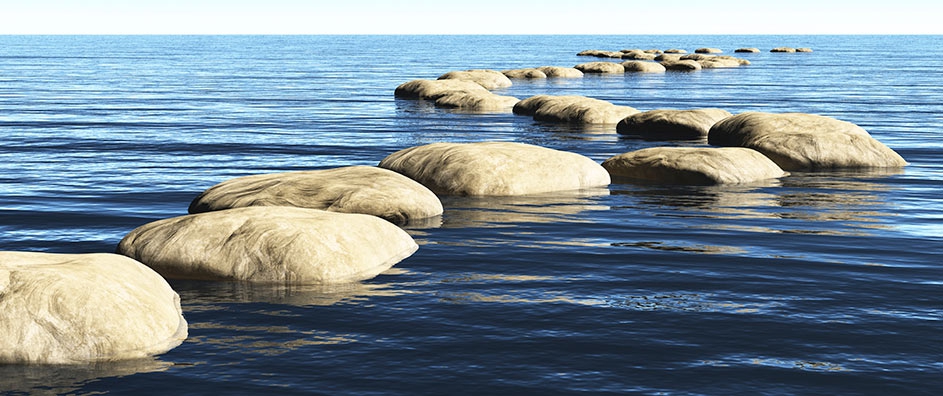The views expressed in our content reflect individual perspectives and do not represent the authoritative views of the Baha'i Faith.
Consider a tree: Behold how We plant it in a garden, and nourish it with the waters of Our loving care; and how, when it hath grown tall and mature, and brought forth verdant leaves and goodly fruits, We send forth the tempestuous gales of Our decree, tear it up by its roots, and lay it prostrate upon the face of the earth. So hath it been Our way with all things, and so shall it be in this day. – Baha’u’llah, The Summons of the Lord of Hosts, p. 37.
Everything on Earth, in our solar system and the galaxy that spawned it grows, matures and dies.
That tremendous, universal cycle of growth can help us understand our own spiritual search. Just as our physical life exemplifies the power of growth and maturation–of the irresistible, built-in, genetic drive of living things to continually transcend one state of existence and move toward the next–our path to spiritual maturity does the same. Even the tiniest form of life starts out as a tinier seed that contains its own genetic code, destined to mature through time into the fulfillment of that code. Acorns become oaks. All of us have that built-in desire to grow, both physically and spiritually, kneaded into our very beings.
We understand that life means growth and growth means motion, both in the macrocosm of the Earth and in the microcosm of the individual human being.
Want an example? Just take a look at yourself. If you’re an adult whose physical growth has peaked, you may think of your body—your head, your limbs, your torso, your skin and eyes and ears—as something fixed and relatively constant. But that’s only an illusion. Actually, on average, adults renew each cell in our entire bodily structure every 7-10 years. You might think of your own body as permanent and fixed, but it stays in a state of constant flux, rebuilding itself every second, discarding old cells and making new ones.
 For example: your entire epidermis—the surface of your skin—recycles every two weeks or so. In adults, each bone in your skeleton replaces itself about once a decade. Red blood cells live for approximately two weeks. As far as medical science now knows, the only cells you keep throughout your entire lifetime reside in the cerebral cortex of your brain.
For example: your entire epidermis—the surface of your skin—recycles every two weeks or so. In adults, each bone in your skeleton replaces itself about once a decade. Red blood cells live for approximately two weeks. As far as medical science now knows, the only cells you keep throughout your entire lifetime reside in the cerebral cortex of your brain.
This constant rebuilding, along with our digestion, our breathing, the pump and flow of our lifeblood, the perpetual electricity inside our nervous system, the twitch of muscle on bone, all of this motion defines us as alive. Individual atoms never rest, electrons and protons spinning around nuclei like miniature earths and suns. Molecules remake themselves. Cells divide and multiply, battle disease, strengthen sinew, heal wounds, each contributing to the growth and development of the whole. At every stage of the process, increasing complexity means that the organism doesn’t just grow larger–it means the organism matures.
This process of maturation forms the basis of all life. Study it, and you will discover a profound truth.
The world’s most renowned philosophers, beginning with Socrates and Plato, and every major religious teaching from the earliest to the most recent, all affirm that the entire, ever-growing physical creation itself serves as one gigantic parable, which continually teaches us about our innermost reality. The unfolding flower, the green sprout, the new dawn, the ripening fruit, the fragrant springtime and the gurgling baby, each beautiful in its own right, all have another level of beauty beyond the physical. They each symbolize the power of maturation, spiritual growth and newly-realized inner life.
These symbols of physical maturation, expanded to encompass all creation, surround us with a perfectly crafted outward story of the inner journey we all take—with just one very important exception:
Absolute repose does not exist in nature. All things either make progress or lose ground. Everything moves forward or backward, nothing is without motion. From his birth, a man progresses physically until he reaches maturity, then, having arrived at the prime of his life, he begins to decline, the strength and powers of his body decrease, and he gradually arrives at the hour of death. Likewise a plant progresses from the seed to maturity, then its life begins to lessen until it fades and dies. A bird soars to a certain height and having reached the highest possible point in its flight, begins its descent to earth.
Thus it is evident that movement is essential to all existence. All material things progress to a certain point, then begin to decline. This is the law which governs the whole physical creation.
Now let us consider the soul. We have seen that movement is essential to existence; nothing that has life is without motion. All creation, whether of the mineral, vegetable or animal kingdom, is compelled to obey the law of motion; it must either ascend or descend. But with the human soul, there is no decline. Its only movement is towards perfection; growth and progress alone constitute the motion of the soul.
Divine perfection is infinite, therefore the progress of the soul is also infinite. From the very birth of a human being the soul progresses, the intellect grows and knowledge increases. When the body dies the soul lives on. All the differing degrees of created physical beings are limited, but the soul is limitless! – Abdu’l-Baha, Paris Talks, p. 89.
Everything physical grows, matures and dies, reality and religion both tell us, but our souls live on. That single, limitless spiritual element cannot die and decompose, because it was never composed of various atoms, molecules and cells in the first place. Our souls contain us, enfolding our ineffable existence forever, and our souls grow and mature, too. But that maturation, unlike its physical counterpart, has no end. Every great Faith tells us that our souls go on without ceasing–but how does that happen?
Let’s take a look, in the next essay in this series, at how the journey of the soul evolves.
You May Also Like
Comments

















Perhaps it is like how all mistakes can be viewed as learning experiences, something that help us spiritually grow in the bigger picture. Therefore, even if we make such a severe mistake "as to fall into the nethermost fire" (i.e. hell, being spiritually far from God), we achieve a positive net progress. But this servant does not know. Any thoughts?